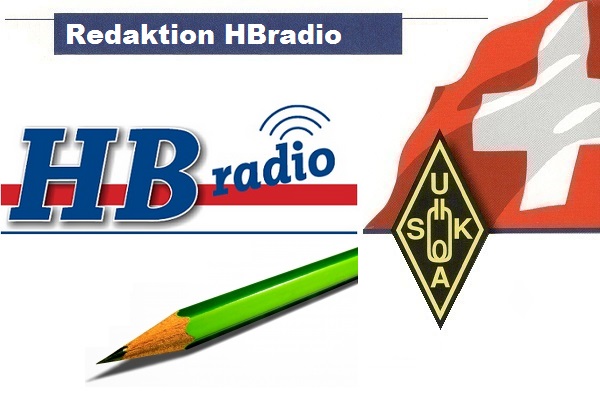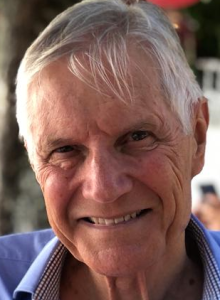The new USKA President: All radio amateurs benefit from the USKA

Deutsche Version: Der neue USKA Präsident sagt: Von der USKA profitieren alle Funkamateure
Version française: Le nouveau président de l’USKA déclare : tous les radioamateurs profitent de l’USKA
Versione italiana: Il nuovo presidente dell’USKA afferma: Tutti i radioamatori traggono beneficio dall’USKA
English version: The new USKA President says: All radio amateurs benefit from the USKA
Editorial HBradio 2/2024
All radio amateurs benefit from the USKA
 In the past, there was no question: at the latest when a candidate had obtained his radio license from DG PTT or OFCOM, he joined the USKA. The main reason was the QSL service. Amateur radio without access to the QSL service was unthinkable back then.
In the past, there was no question: at the latest when a candidate had obtained his radio license from DG PTT or OFCOM, he joined the USKA. The main reason was the QSL service. Amateur radio without access to the QSL service was unthinkable back then.
Today, the QSL service has lost its importance. Since connection confirmations for diplomas can also be submitted electronically, QSL cards are no longer absolutely necessary. In fact, the number of QSL cards issued by the USKA is constantly decreasing. However, the USKA stands for much more than just the QSL service.
Amateur radio lives from the fact that it is regulated worldwide under international law. Ensuring this is a huge task. The highest body that decides which frequencies we are allowed to use is the World Radio Conference WRC. The last one took place in Dubai from 20.11.2023 to 15.12.2023, i.e. for 4 weeks. Imagine that: A committee of around 3600 participants with representatives from the 193 countries of the International Telecommunication Union ITU decides on which frequencies amateur radio may be operated. Even OFCOM, with its delegation of around 15 participants, was just one country among many.
However, the IARU, the international umbrella organization of all national amateur radio clubs, was also present in Dubai. In recent years, it has made a huge effort, also with the support of the USKA, to keep future restrictions on our 23 cm band within limits. The band is primarily intended for radio navigation (GPS etc.) and we radio amateurs are secondary users. At the WRC 2019 in Sharm El-Sheikh, they even wanted to take away the 2 m band from us, a band that is, of course, exclusively allocated to radio amateurs.
Supporting the preservation of our bands at all levels in the best possible way is of the utmost importance
However, the USKA also deals with many other challenging tasks that can only be solved at national level:
- It has two formal meetings a year with OFCOM to discuss ongoing issues: new frequencies (e.g. 4 m band), new operating modes, coordination of relay frequencies, interference to our frequency bands (EMC), new examination procedures, satellite uses, etc.
- It deals with building laws and antenna licenses, with questions of radiation exposure (NISV), and generally with the best possible legal framework for amateur radio
- It endeavors to make amateur radio known and popular at schools and other events (Tec-Days, TUN-Bern, -Basel, -Lucerne etc.)
- It seeks cooperation with related leisure activities such as makers, fab labs, the Lora community, etc. to get them interested in amateur radio too
- It is generally concerned about the next generation in amateur radio
However, the local sections are just as important as the national USKA. This is where the real amateur radio life takes place. They are responsible for the practical, operational part: Club events, further training, participation in contests, equipment and antenna construction, etc. In Switzerland, the sections are independent associations with their own statutes and legal status. This is somewhat special compared to other countries, but is in keeping with the federalist system in Switzerland.
Anyone who is interested in amateur radio should therefore belong to at least two associations in Switzerland:
- The national association USKA, to show solidarity in supporting the unique, worldwide privileges of amateur radio, and to ensure national recognition
At least one of the 34 sections that corresponds to his personal interests and where he feels comfortable among colleagues. - Collective members are also a welcome addition to the amateur radio club landscape. They usually represent very specific interest groups, be it in terms of radio activities, professional communities or other commonalities. However, they have no voice in the USKA and are therefore no substitute for membership in a USKA section.
I have officially been your President since the Assembly of Delegates on February 24, 2024. I am very keen to deepen and intensify cooperation between the USKA and the sections in the future. In addition, it is important to adapt the organization and administration of the USKA to today’s digital world and to meet the increased needs and expectations of our members.
I am looking forward to taking on this task for the coming years because it is important to me that amateur radio will still be recognized as a meaningful volunteer activity in 50 years’ time, and that it will enjoy significance and recognition in society: be it as a supplement to technical training, as a last communication reserve in extreme disaster situations, or just for the fun of not only using radio technology, but also understanding it.
Amateur radio is diverse, instructive and fascinating and brings many long-lasting social contacts among like-minded people.
Thank you very much for your support of the activities of the USKA, in your sections and in the collective members. I would like to thank each and every USKA member for their many years of loyalty.
Bernard Wehrli, HB9ALH
President of the USKA
